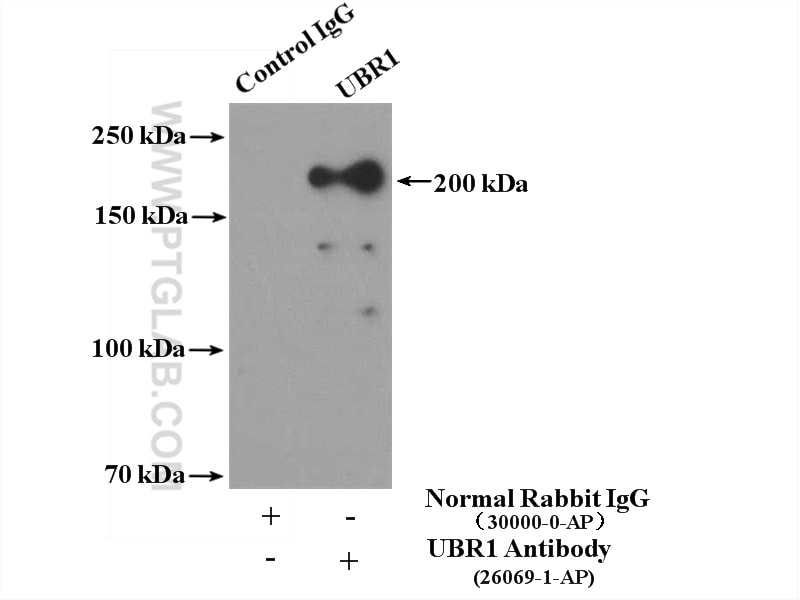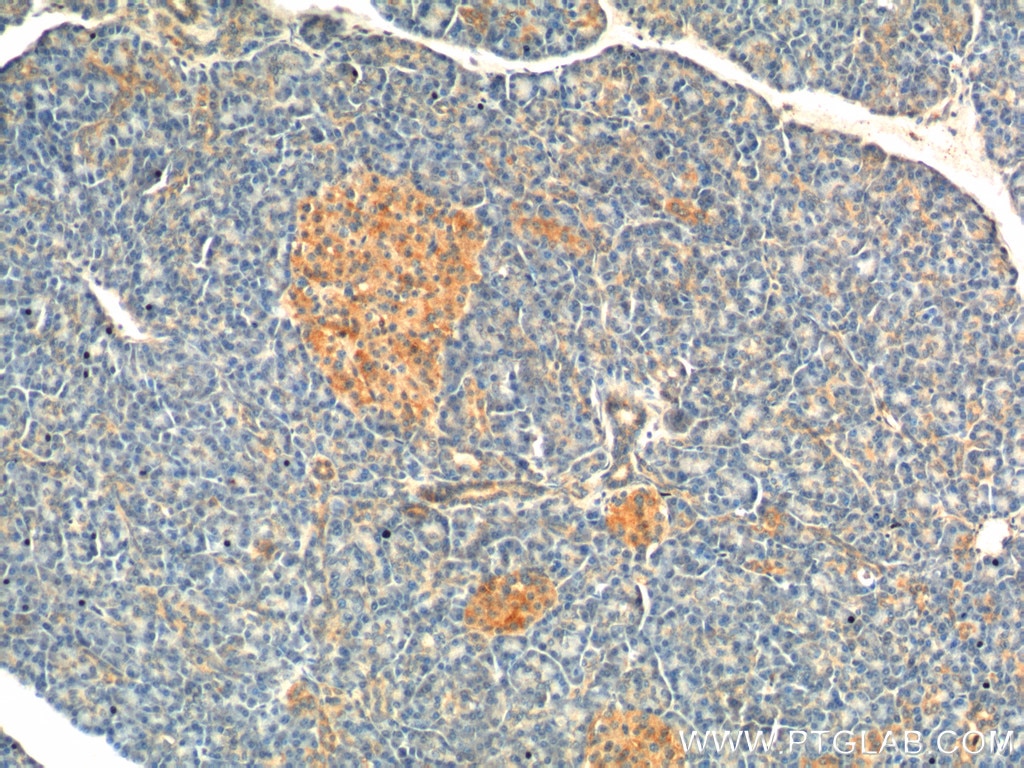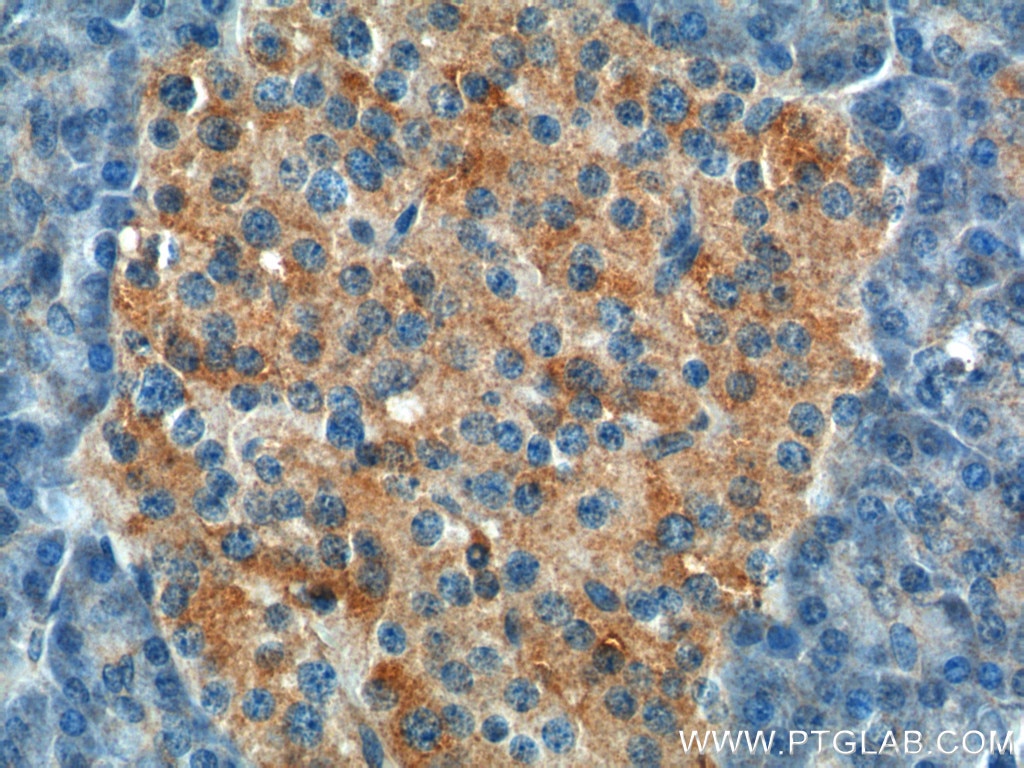UBR1 Polyklonaler Antikörper
UBR1 Polyklonal Antikörper für IHC, IP, ELISA
Wirt / Isotyp
Kaninchen / IgG
Getestete Reaktivität
human, Maus
Anwendung
WB, IP, IHC, ELISA
Konjugation
Unkonjugiert
Kat-Nr. : 26069-1-AP
Synonyme
Galerie der Validierungsdaten
Geprüfte Anwendungen
| Erfolgreiche IP | Maus-Skelettmuskelgewebe |
| Erfolgreiche Detektion in IHC | humanes Pankreasgewebe Hinweis: Antigendemaskierung mit TE-Puffer pH 9,0 empfohlen. (*) Wahlweise kann die Antigendemaskierung auch mit Citratpuffer pH 6,0 erfolgen. |
Empfohlene Verdünnung
| Anwendung | Verdünnung |
|---|---|
| Immunpräzipitation (IP) | IP : 0.5-4.0 ug for 1.0-3.0 mg of total protein lysate |
| Immunhistochemie (IHC) | IHC : 1:50-1:500 |
| It is recommended that this reagent should be titrated in each testing system to obtain optimal results. | |
| Sample-dependent, check data in validation data gallery | |
Veröffentlichte Anwendungen
| KD/KO | See 1 publications below |
| WB | See 2 publications below |
| IP | See 1 publications below |
Produktinformation
26069-1-AP bindet in WB, IP, IHC, ELISA UBR1 und zeigt Reaktivität mit human, Maus
| Getestete Reaktivität | human, Maus |
| In Publikationen genannte Reaktivität | human |
| Wirt / Isotyp | Kaninchen / IgG |
| Klonalität | Polyklonal |
| Typ | Antikörper |
| Immunogen | UBR1 fusion protein Ag22076 |
| Vollständiger Name | ubiquitin protein ligase E3 component n-recognin 1 |
| Berechnetes Molekulargewicht | 1749 aa, 200 kDa |
| Beobachtetes Molekulargewicht | 200 kDa |
| GenBank-Zugangsnummer | BC113505 |
| Gene symbol | UBR1 |
| Gene ID (NCBI) | 197131 |
| Konjugation | Unkonjugiert |
| Form | Liquid |
| Reinigungsmethode | Antigen-Affinitätsreinigung |
| Lagerungspuffer | PBS mit 0.02% Natriumazid und 50% Glycerin pH 7.3. |
| Lagerungsbedingungen | Bei -20°C lagern. Nach dem Versand ein Jahr lang stabil Aliquotieren ist bei -20oC Lagerung nicht notwendig. 20ul Größen enthalten 0,1% BSA. |
Protokolle
| Produktspezifische Protokolle | |
|---|---|
| IHC protocol for UBR1 antibody 26069-1-AP | Protokoll herunterladen |
| IP protocol for UBR1 antibody 26069-1-AP | Protokoll herunterladen |
| Standard-Protokolle | |
|---|---|
| Klicken Sie hier, um unsere Standardprotokolle anzuzeigen |
Publikationen
| Species | Application | Title |
|---|---|---|
J Cachexia Sarcopenia Muscle Identification of Ubr1 as an amino acid sensor of steatosis in liver and muscle | ||
Diabetes N-end Rule-Mediated Proteasomal Degradation of ATGL Promotes Lipid Storage
|




